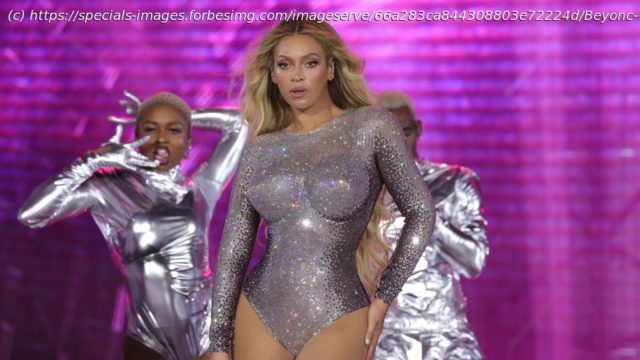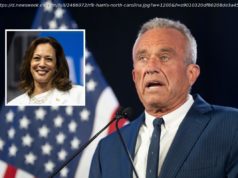“Freedom” became an anthem adopted by police brutality protesters upon release in 2016 and surged in popularity once again following the 2020 police killing of George Floyd.
Topline
“Freedom,” a song from Beyoncé’s 2016 album “Lemonade” that plays throughout Vice President Kamala Harris’ first presidential campaign ad, is embedded with political lyrics and imagery and has been used by activists and Beyoncé herself as a protest anthem against police misconduct—years before she reportedly gave Harris permission to use it as a campaign song.Key Facts
“Freedom,” which features rapper Kendrick Lamar, includes lyrics that reference racism, slavery and police brutality, as Beyoncé sings in the chorus that she “needs freedom” and “breaks chains all by myself.”
Lamar’s verse references an incident of police violence, as “six headlights” chase him and police deploy “fire hydrants and hazardous smoke alarms” as “death is around the corner.”
In the second verse, Beyoncé sings she is going to “wade through the waters,” a reference to “Wade in the Water,” a song some historians believe was sung by slaves on the Underground Railroad.
During “Freedom” and several other songs included in a film released alongside Beyoncé’s “Lemonade” album, the mothers of people killed by police make appearances and hold portraits of their children.
The song also samples “Stewball,” a song recorded by music preservationist Alan Lomax in 1947 sung by prisoners at Mississippi State Penitentiary, as well as “Collection Speech/Unidentified Lining Hymn,” another recording by Lomax performed by Reverend R.C. Crenshaw at Memphis’ Great Harvest Missionary Baptist Church in 1959.
“Freedom” is one of several songs to reference racism and police brutality on “Lemonade,” and Beyoncé’s collaborator Lamar is known for his political raps, including his 2015 song “Alright,” which has also been adopted by protesters as an anti-police brutality song.






